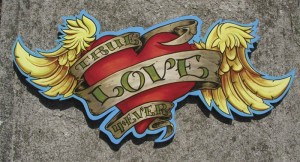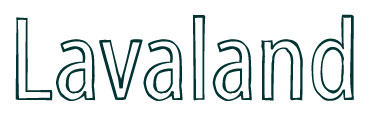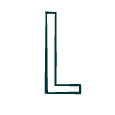How to Know When You’re in Love
 Eleven years ago, I was in the last throes of despair with my ex-wife. I didn’t much like her, nor she me. Within a year, we would be divorced. She was the kind who slept in another room — sometimes another room in a nearby city. Me, I gleefully flew off to Scotland on a moment’s notice. It was like that. We tolerated one another, and no more.
Eleven years ago, I was in the last throes of despair with my ex-wife. I didn’t much like her, nor she me. Within a year, we would be divorced. She was the kind who slept in another room — sometimes another room in a nearby city. Me, I gleefully flew off to Scotland on a moment’s notice. It was like that. We tolerated one another, and no more.
In matters of love, tolerance is a waste of time, the fire-suppression system for passion. We’re talking about the person here, not their annoying quirks — it is incumbent upon you to accept the quirks of a loved one. If you can’t love a person’s type-A tendencies, her habitual misspellings, her inability to tell north from south, then you are on the slippery slope toward tolerating one another. And if you only tolerate, then you are not in love.
That summer, I was assigned to interview a PGA golfer in Scotland, at the British Open. I had three days to get it planned. Rooms in that area of Scotland had been booked for months. I went online, got on waiting lists and left the country without a reservation. If your heart skips a beat at the mere thought of flying a continent away from a person, then you are not in love with them.
My ex-wife had been kind enough to drive me to the airport. Instead of saying goodbye, I said, “Thank you,” and she said, “See you.”
Question 1
When people ask, “How do I know I’m in love?” I ask what it feels like to say goodbye. A departure should matter. It should involve pangs, evoke some loss. Nothing crippling, but separation should register a little in the heart. If the exchange is like the one I just described — thank you, see you — forget it. You aren’t in love.
When I landed in Edinburgh, there was an e-mail from a Mr. Anderson. He had a room, wanted cash, and gave directions. Two hours later, he met me at the gate to his driveway and fairly crushed my hand when he shook it. He was a burly, bearded, seventy-year-old cement contractor, arms like chains, a long untrimmed goatee. When his wife came out of the house, he introduced us, wrapping an arm around her waist, lifting her off the ground to kiss her. I mean, the guy really kissed her. Then Mr. Anderson slapped his hands together theatrically and asked for the cash. I paid, and then his wife kissed him hard on the mouth, utterly unworried what I would think.
Question 2
When people ask, “How do I know I’m in love?” I reply: What is it like to kiss her? Do you want to pick her up? Do you want to lay her down? Are you unafraid of what anyone else will think of the way you kiss her? Kissing is not to be underestimated when it comes to love.
“Now you can cook!” Mr. Anderson declared. “We can go get that elk for tomorrow!”
“You were right,” she murmured, “Listing the room was brilliant, Iain. You are a smart one!”
They were happy. For the money, yes, though they seemed to have plenty. But he was happy for her, and she for him.
Question 3
When people ask, “How do I know I’m in love?” I say: What makes you happy? Most people assume the answer should be: her. But the answer should be: whatever makes her happy. To see her succeed, thrive, be delighted, delirious, if this thrills you, this is a sure sign of love.
Mrs. Anderson was generous with her cooking, and Mr. Anderson took me to play a round of golf at Panmure, his home course. Later he gave me a ten-minute lesson on driving a motorcycles, before slipping a helmet on my head and leading the three of us on a nervy, thrilling, wrong-side-of-the-road jaunt into the countryside.
That night we ate Mrs. Anderson’s haggis, her elk and quail eggs, drank his whiskey. They sat with me in the garden, drinking until dark, after which she urged him to teach me to curl — how to broom the ice, read the surface, release the stone — until 1:30 in the morning. Everywhere we went, she followed him. Or he followed her. Sometimes I couldn’t tell. They could not get enough of one another. I’d forgotten what it was like to live in the presence of love. I could see that love, the very fact of their other person, aroused possibilities in the world around them.
Question 4
When people ask me, “How do I know I’m in love?” I reply: Do you want it? Are you interested in love? Does it make you happy to be around people who are in love? You have to be open to that kind of want.
At some point, they showed me a picture of their older daughter, who lived in Edinburgh — a snapshot, taken as she turned to look at her mother. A little younger than me, slender and auburn-haired. Beautiful woman, not one bit of anger in her eyes. I stared at that picture often, convincing myself that she was the one I might love, that she — thirty-four, a nurse, unattached at that moment — might be open to the romantic idea of me — thirty-nine, married, two sons, half-broke, and mortgaged to a house that was depreciating even then, some seven times zones to the west.
Somehow, it felt like it might happen, though I took no steps to see that it might. I thought more and more about simply staying. I was willing to base my future on the prospect of a chimera in a dime-store frame. That’s how much I wanted love.
I made it sound like small talk. “If I lived here,” I said, “what would it cost me to get my hands on a good used car?” Mr. Anderson shook his mane of white hair. Then he asked me the question I mentioned at the start, the one I use when people ask me about love, as if it’s something that can be diagnosed and verified.
He looked at me and said, “How long is a piece of string?”
When I stared at him blankly, he looked at me and clarified: “You don’t know. And I don’t know. You have to look for yourself. Measure carefully and you’ll almost always be right.”
Question 5
How do I know I’m in love? The formulations are out there: Butterflies, stomachaches, increased forgetfulness, inability to focus. You have to craft your very own answer to your very own question. Get close, take a real look, decide. Like the old man told me, you’ll almost always be right. There is always an answer.
By Tom Chiarella
Source: Esquire / MSN


